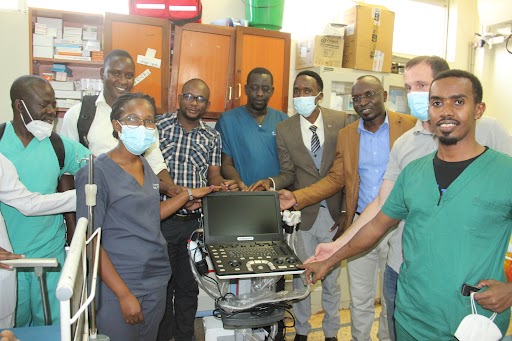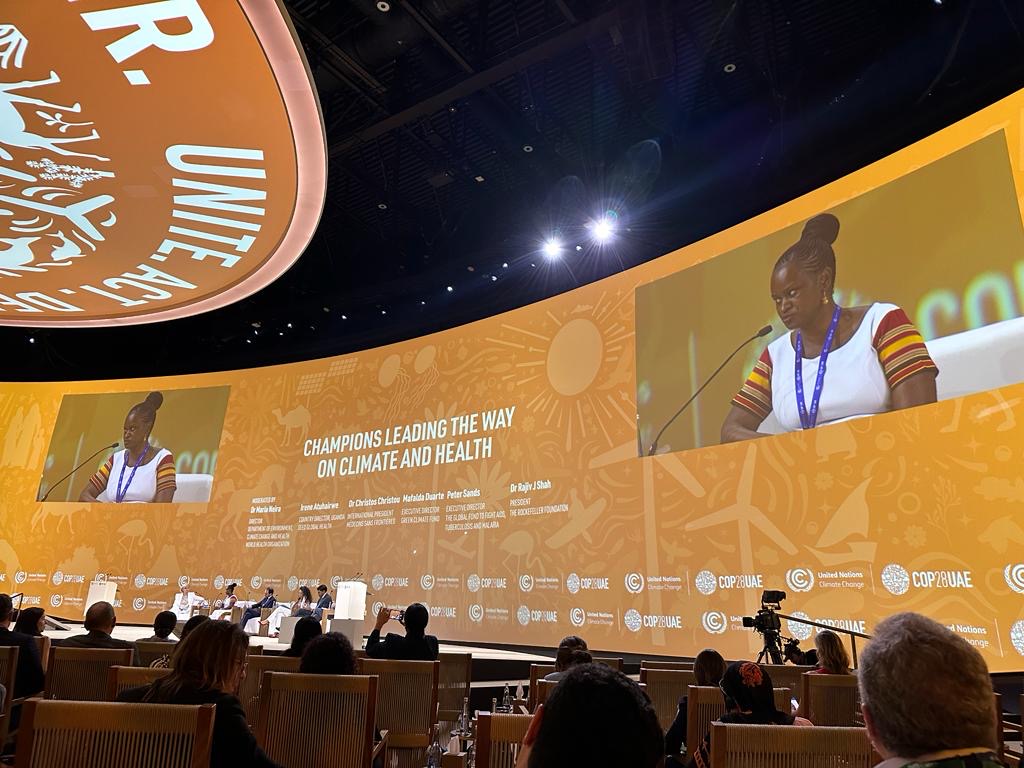
New Study Recommends Using Point-of-Care Ultrasound to Diagnose Patients with Hypoxia in Resource-Limited Emergency Departments
Seed Global Health Educators and Emergency Medicine Trainees in Uganda Publish Findings in African Journal of Emergency Medicine
A new study published by Seed Global Health educators and Mbarara University of Science & Technology emergency medicine trainees in the African Journal of Emergency Medicine recommends using point-of-care ultrasound to diagnose patients with low oxygen levels (hypoxia) in resource limited emergency settings.
Hypoxia is a common presentation in emergency departments worldwide and affects nine to 12 percent of hospitalized adults in Sub-Saharan Africa. Timely diagnosis of the possible causes of hypoxia, including pneumonia and heart failure, is critical but challenging. Chest x-rays, one of the most common imaging modalities, have many limitations, and computed tomography scans, considered the gold standard, are inaccessible. Point-of-care ultrasound is more available and increasingly being used, but little has been known about its performance in resource limited emergency departments.

Photo: Seed Global Health hands over a point of care ultrasound to Uganda’s Mbarara University of Science and Technology/Mbarara Regional Referral Hospital
The study, conducted in Uganda, found not only that point-of-care ultrasound identified significantly more abnormalities than chest x-rays in patients presenting with hypoxia, but also that it demonstrated better agreement and strong reliability with physician diagnoses. Point of care ultrasound is only recommended for use by health workers who have received specialized training in how to use the technology.
The authors of the study are a cross section of Seed educators and students. Since the study was conducted, several of the student authors now have gone on to become academic faculty at Mbarara University of Science & Technology (MUST) in Uganda, which is a powerful testament to Seed’s model. With Seed support, trained health workers go on to strengthen their colleagues’ knowledge and skills, thus contributing to a stronger and more resilient health system overall.
Over the last five years, Seed Global Health has helped to build Uganda’s emergency medicine specialty by training and graduating the country’s first ever emergency physicians in 2021. In addition to strengthening emergency medicine education, Seed also has supported MUST and Mbarara Regional Referral Hospital with point-of-care ultrasound machines, training, and other essential emergency department equipment.
Seed has worked hand-in-hand with our government partners in Uganda to develop national emergency medical services policies, guidelines, and standards; offer emergency care training and mentorship by embedding physician and nurse educators at regional hospitals and academic institutions; and streamline national emergency care referral processes by establishing call and dispatch centers. We also have rolled out an emergency medicine curriculum through a remote learning platform, enabling us to reach more than 9,000 health workers, including those serving more rural communities.

